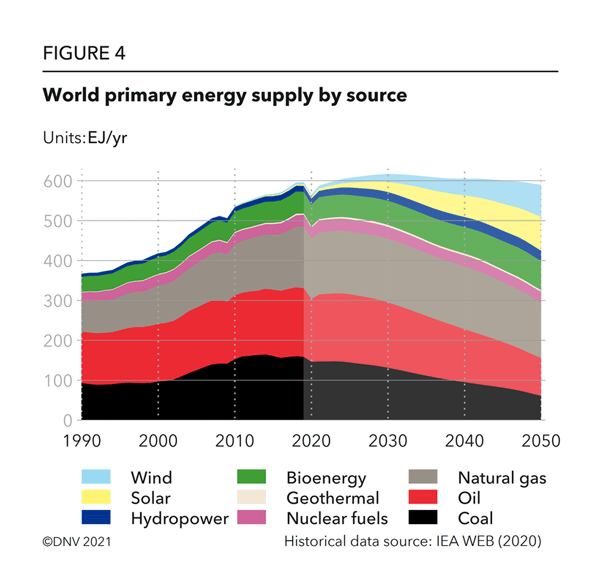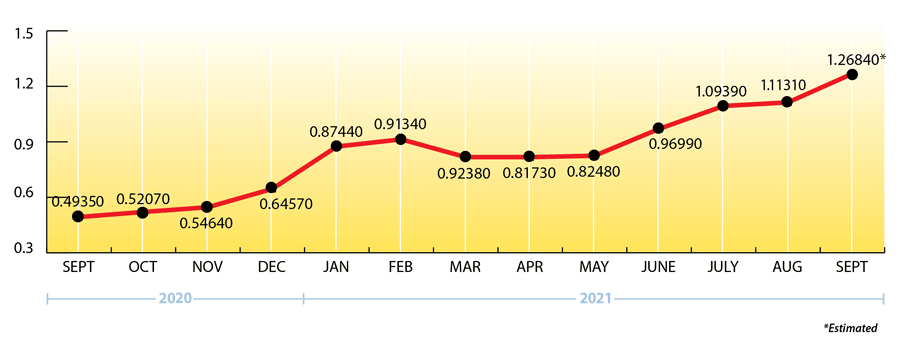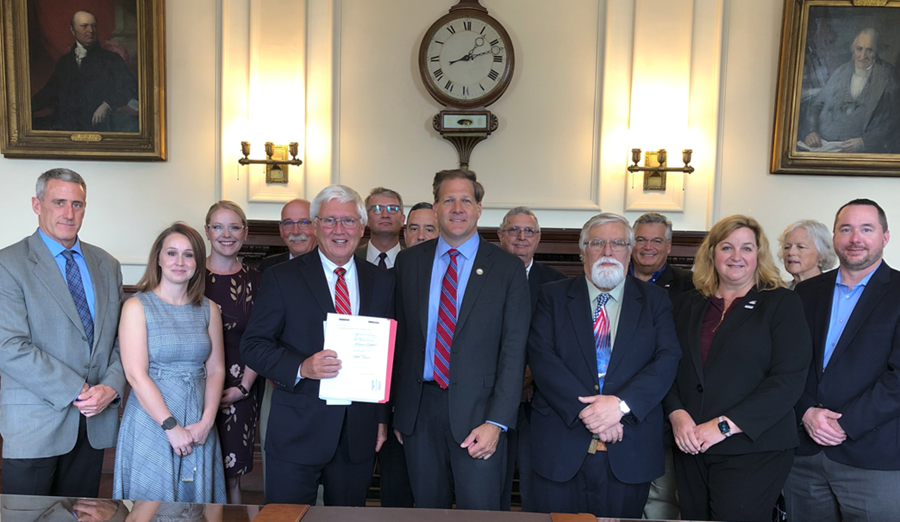Should People Have Energy Choices?
Live Free or Die
New Hampshire (Senate Bill 86) becomes the 20th state since 2020, and the first state in the Northeast, to protect the rights of citizens and businesses to freely choose their energy sources.
Let’s be honest, this consumer protection law is a refreshing rebuttal to state and local proposals and mandates elsewhere that want to prohibit consumer choice and eliminate competition.
Global Robin Hood
And while attention is now being paid on the national level to the flaws and inequities of fossil-free energy discussions, there are global ramifications to the “electrify everything” argument that’s rarely discussed.

Fossil fuels aren’t going away in 30 years.
The logical consequence of plans to prohibit energy choice and eliminate all fossil fuel consumption in developed countries is that fossil fuel consumption in lesser developed countries will increase, much of it imported from North America!
Such plans will come at the expense of average Americans who will pay more for electricity while watching their standard of living decline. In essence, the U.S. would become a sponsor of global equality.
Don’t get me wrong, global fairness may be a noble goal. I also think that pay-as-you-go or subsidized utility-style propane plans in the poorest countries are an innovative way to lift people out of poverty. And giving people the choice to switch from wood or dung to propane is a good thing; it will boost their quality of life and standard of living.
But developing a win/win global strategy is a more equitable solution for everyone.
A Better Solution
Most of the world’s electric generation comes from fossil fuels, including 30 percent that comes from coal power plants. And both coal and gasoline produce significantly more CO2, the main component of greenhouse gas emissions, than natural gas liquids.
So shouldn’t energy policies focus on integrating low-carbon, clean-energy solutions like propane, LPG (a propane-butane blend), and autogas with the latest renewable energy sources and technologies to meet sustainable development goals that reduce carbon dioxide emissions, improve the quality of life around the world, and protect clean energy choices for consumers?
Isn’t that a better path forward?
What’s Happening With Propane Prices?
Belvieu propane prices reached $1.25/gallon recently, the highest price level since January, 2014, when crude approached $100/bbl. and propane traded near $1.60/gallon.
Unfortunately, Gulf Coast propane inventories just aren’t building. In fact, they’ve actually declined since last month’s blog. It’s possible that we’ll see propane’s percentage to crude creep up to 75 percent (or higher) until inventory levels improve.
Where do prices go from here?
The Energy Information Agency (EIA) and major global investment banking firms have been forecasting a fourth quarter range of $71/bbl. to $80/bbl. for Brent crude. This equals $68/bbl. to $77/bbl. WTI which translates to $1.23/gallon to $1.39/gallon! Belvieu propane at 73 percent value to crude.
Assuming that’s a reasonable price forecast for the next three months, we’ll all need to stay on top of our receivables.
Propane Price Chart

Weekly Inventory Numbers
U.S. propane inventories showed a discouraging weekly build of only .7 mmbbls., below most industry expectations, for the week ending September 10, 2021. That brings national inventory levels to 70.8 mmbbls., about 26 percent behind last year and 20 percent behind the 5-year average.
PADD 2 (Midwest/Conway) inventories had a nice build of .9 mmbbls. They currently stand at 24.0 mmbbls., roughly 12 percent behind last year.
PADD 3 (Gulf Coast/Belvieu) inventories showed a disappointing draw of .3 mmbbls. They now stand at 33.2 mmbbls., nearly 40 percent behind last year.
The Skinny
 State and national propane gas associations and their members do a great job telling the story of propane. It’s a remarkable story because propane is a remarkable fuel and a versatile, clean-energy solution that’s readily available for everyone.
State and national propane gas associations and their members do a great job telling the story of propane. It’s a remarkable story because propane is a remarkable fuel and a versatile, clean-energy solution that’s readily available for everyone.
And new consumer protection laws, like NH SB86 that protect the rights of consumers and businesses to freely choose their energy sources (such as propane!), are a tremendous step in the right direction.
Get Stephen's insights on propane delivered to your inbox every month.
Sign up for our monthly newsletter here.
For more frequent updates and industry news, join us on LinkedIn.
NOTE: The views and opinions expressed herein are solely those of the author, unless attributed to a third-party source, and do not necessarily reflect the views of Ray Energy Corp, its affiliates, or its employees. The information set forth herein has been obtained or derived from sources believed by the author to be reliable. However, the author does not make any representation or warranty, express or implied, as to the information’s accuracy or completeness, nor does the author recommend that the attached information serve as the basis of any buying decision and it has been provided to you solely for informational purposes. © 2011-2021 Ray Energy Corp. All rights reserved. Any reproduction, representation, adaptation, translation, and/or transformation, in whole or in part by whatsoever process, of this site or of one or several of its components, is forbidden without the express written authorization from Ray Energy Corp.


